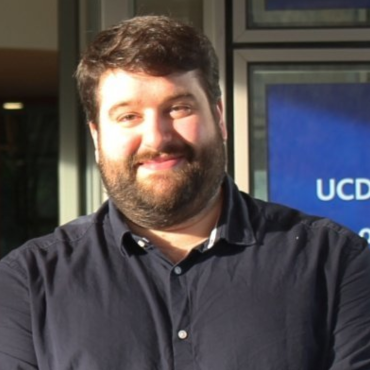Q&A with Dr Carlos Matellan
(opens in a new window)carlos.matellan@ucd.ie
What were your primary areas of research?
My current research focuses on investigating the  mechanisms of interaction between inflammatory fibroblasts and immune cells in the context of inflammatory bowel disease (IBD). Ulcerative colitis and Crohn’s disease (collectively known as IBD) are life-long inflammatory conditions of the gastrointestinal tract characterised by periods of remission and flares. Despite affecting ~40,000 people in Ireland, there is currently no cure for IBD, and while there are treatments available to ameliorate the symptoms of flares, patients tend to develop resistance and complications over time. My research aims at understanding the role of structural cells (fibroblasts) in chronic inflammation and therapy resistance by investigating how they activate the immune system. In the future, this research could help us develop new therapies that rewire the communication between the stroma and immune cells.
mechanisms of interaction between inflammatory fibroblasts and immune cells in the context of inflammatory bowel disease (IBD). Ulcerative colitis and Crohn’s disease (collectively known as IBD) are life-long inflammatory conditions of the gastrointestinal tract characterised by periods of remission and flares. Despite affecting ~40,000 people in Ireland, there is currently no cure for IBD, and while there are treatments available to ameliorate the symptoms of flares, patients tend to develop resistance and complications over time. My research aims at understanding the role of structural cells (fibroblasts) in chronic inflammation and therapy resistance by investigating how they activate the immune system. In the future, this research could help us develop new therapies that rewire the communication between the stroma and immune cells.
What do you consider your most significant research accomplishments to date?
In the first year of my postdoc we identified a cytokine called TWEAK (a member of the TNF superfamily) as a driver of inflammatory differentiation in colonic fibroblasts, and showed that TWEAK-stimulated fibroblasts can activate monocytes, prompting an inflammatory polarisation with markers associated with resistance to anti-TNF therapy. We are now collaborating with clinicians in SVUH to validate these findings in biopsies from IBD patients. We want to better understand how the interaction between fibroblasts and the immune system contributes to relapse and therapy resistance.
In your career what would be the ultimate achievement you would like to accomplish?
My research career has been defined by multidisciplinary training, shifting from microfluidics to cancer biomechanics, and now to immunology. In the future, I would like to combine the different skills I have acquired in these fields to investigate how mechanosignalling shapes the immune landscape of cancer, contributing to advances in immunotherapy.
Do you have any advice for those considering engaging in clinical research?
Find a positive and nurturing environment. Research can take a lot of resilience, so celebrate every win, however small. Find a research question that excites you and make peace with the unknowns that come with this career. Having a supportive network of colleagues, mentors and friends will get you through the tough times, but also remember to be kind, supportive and patient with those around you.
Are there any relevant links to your published work or other resources that you would like to share?
View Dr Carlos Matellan's profile (opens in a new window)here.